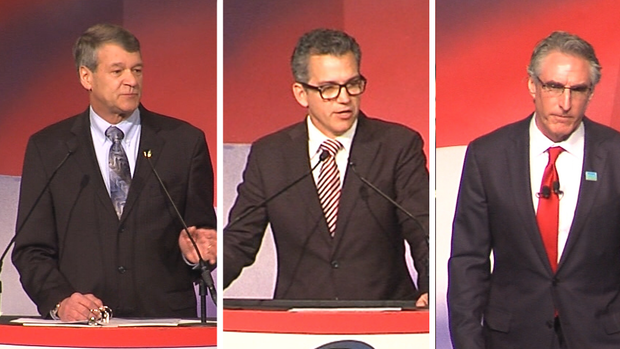Rick Becker: Some Thoughts on Doug Burgum’s Victory

Congratulations to Doug Burgum and his team on their decisive victory.
As a Republican legislator and previous candidate for the Republican nomination for Governor, I have a couple points I think would be good to keep in mind in the upcoming months, election, and legislative session.
First, Doug won. I look forward to working with him, as I believe he will hold a unique perspective on the Governor’s office and the role in furthering his objectives as Governor. Did he ruffle some feathers of a few legislators and some in the party? Sure, but so what? If there is a degree of friction (and frankly, I think there will not be much), that’s a good thing. A little friction between the legislature and the executive has been lacking.
The legislature should not be the en masse sycophant to the executive. Optimally-functioning government requires thought and action of the legislative and executive branches that are at least somewhat independent from one another.
[mks_pullquote align=”right” width=”300″ size=”24″ bg_color=”#ffffff” txt_color=”#000000″]We know the voters in the nation are in no mood for politics as usual. That’s abundantly clear in the Trump and Sanders dramas. Why would North Dakota be the exception?[/mks_pullquote]
Second, why did Doug win? Some have said he “bought” the election. I call B.S. Doug spent a ton, but in my estimation it didn’t win him the election. What he “bought” was name recognition. It essentially gave him an even playing field with Wayne in the important game of name recognition.
Some have said Democrat crossover gave Doug the win. Again, I say malarkey. Perhaps if Doug had won by single digits rather than a landslide, it would be a reasonable argument. It’s an interesting phenomenon to be sure, but it’s not the answer.
What’s left? The candidates’ message and the voters’ mood.
Some will point to specific claims or talking points made during the campaign, but that ax cuts both ways. If one doesn’t see that the message and what the candidates represented played a pivotal role in the outcome of the election, it is because they don’t want to.
Condensed into its simplest form, the messages were as follows: Wayne said things in North Dakota are great, and wanted to maintain the status quo. Doug said we need to change how we do things in state government and pointed to the $1.1B budget shortfall as a prime example.
The details and nuances of their messages are fodder for several columns and extensive debate, however, that isn’t the point here. The point is that those messages are what most represented the campaigns in the minds of the voters.
We know the voters in the nation are in no mood for politics as usual. That’s abundantly clear in the Trump and Sanders dramas. Why would North Dakota be the exception? Further, the voter’s disdain for defending the status quo will likely grow as the state’s budget problems become more prominent.
I believe that previous sound bites of campaign rhetoric will have little to no effect on legislative races in November. Legislative candidates will do well to reflect on where the voter’s mindset is at, and how they fit in to that mindset. Yes, sticking to the mantra of “Everything is great. We’ve done everything perfectly” is likely to lose some seats.
Reflecting on what we’ve done, and reassuring the voters we will do better will be enough in most cases to keep or win the seat. Because in the end, if the legislative candidate is honest in this manner, the voter has two choices: elect a Democrat who agrees with the level of spending we’ve done, wants to continue that level of spending, and wants to pay for it in tax hikes; or elect a Republican who says we obviously overspent (or there wouldn’t be a shortfall), we will do better, we will cut spending, and we will not raise taxes.
This approach will go a long way to the legislative candidates keeping their seats. Pretending otherwise is to be out of touch.
Out of touch doesn’t win elections.




